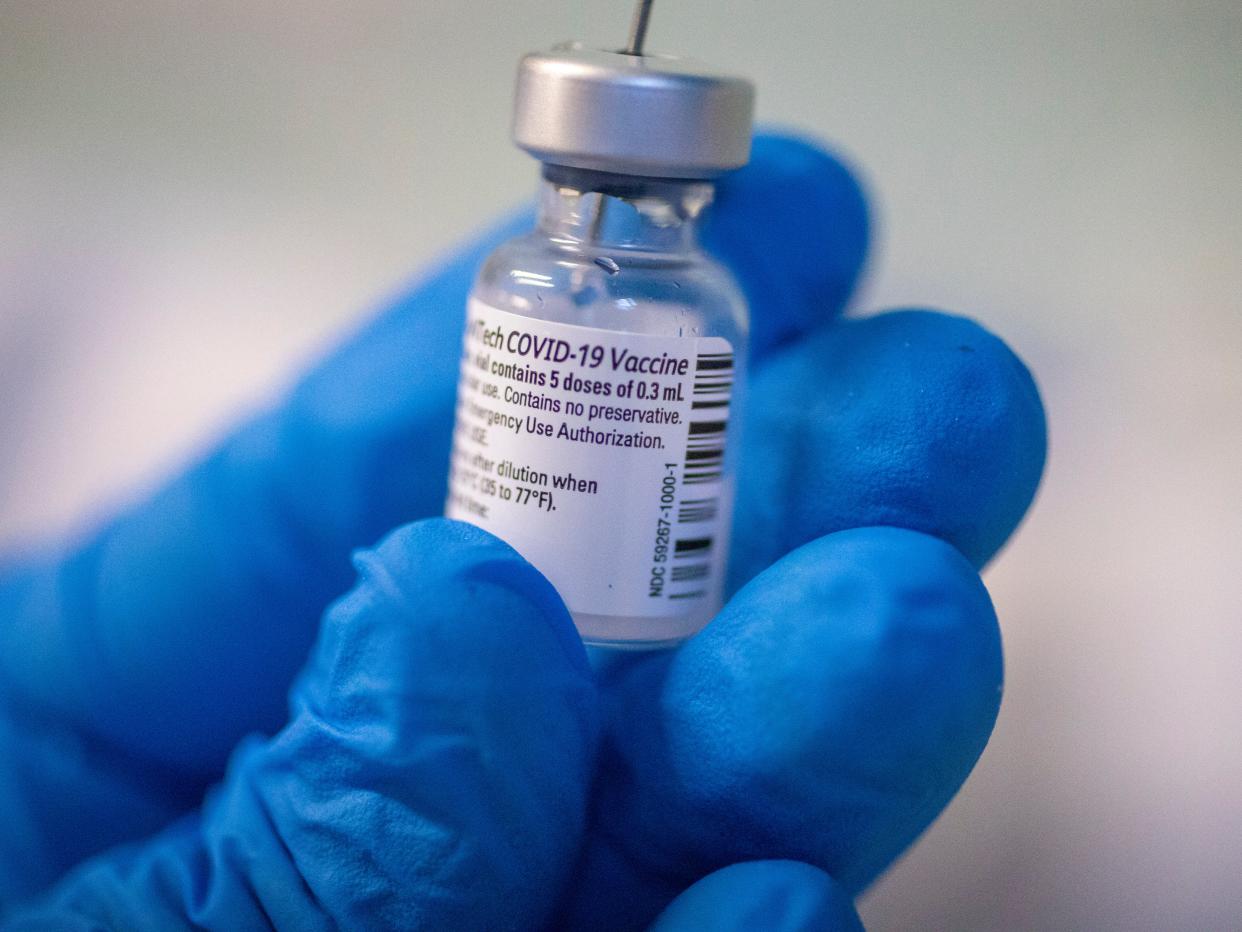CDC issues new guidance on allergic reactions to Covid vaccine

The Centers for Disease Control and Prevention (CDC) has issued new guidance regarding allergies and coronavirus vaccines after reports of severe allergic reactions to the jab.
The agency said it “learned of reports that some people have experienced severe allergic reactions, also known as anaphylaxis, after getting a Covid-19 vaccine."
In the new guidance, the CDC recommends that those who have a severe reaction to the first shot of the vaccine should not receive the second jab.
The agency defined a “severe reaction” as being when a person needs to be treated with epinephrine or EpiPen or if they must go to the hospital.
Officials said that if a person has had a severe allergic reaction to other vaccines or injectable therapies, patients should check with their doctor whether they should get a Covid-19 vaccine.
People who have had a severe reaction to any ingredient in any of the vaccine candidates should also not get that vaccine, according to the agency.
However, the CDC stipulated that those who have had a history of severe allergic reactions not related to vaccines or injectable medications may still get vaccinated.
The guidance comes after a number of severe reactions were reported across multiple states after the jab began to be administered this week.
Last weekend, the US Food and Drug Administration (FDA) said that most Americans with allergies should be safe to receive Pfizer-BioNTech’s vaccine and only people with a history of severe allergic reactions to any component of the vaccine should avoid getting inoculated.
On Friday, the regulator said it had begun investigating five of the reactions to find which component might be helping to produce them.
“I think we have at this point the right ... mitigation strategy with the availability of treatment for a severe allergic reaction being at the ready, and we’ll continue to monitor it very closely,” Dr Peter Marks, director of the FDA division that authorised the vaccine, said.
Clinical trials of the shot involving more than 43,500 volunteers, with more than 20,000 getting the vaccine, showed the jab was 95 per cent effective in its protection against the novel coronavirus.
Pfizer excluded from its clinical trial anyone who had a history of allergies such as ones related to adverse reactions associated with a vaccine.
Officials said they did not encounter anyone in the clinical trial who needed to be excluded from receiving the second dose.
Common side-effects of vaccines include pain, swelling, or redness at the injection site, mild fever, chills, fatigue, headache, and muscle and joint aches.
The FDA advised people with allergies to consult with their doctors to make sure they are not allergic to any component of the vaccine.
The UK’s Medicines and Healthcare products Regulatory Agency has warned that people with a history of “significant” allergic reactions should not receive the Pfizer-BioNTech vaccine.
Read More
2nd COVID-19 vaccine authorized in US preparing to ship out
Moderna vaccine shipments ‘set to arrive in US on Monday’
Alaska healthcare worker has allergic reaction from Covid-19 vaccine
People who suffer from allergic reactions should not take vaccine

